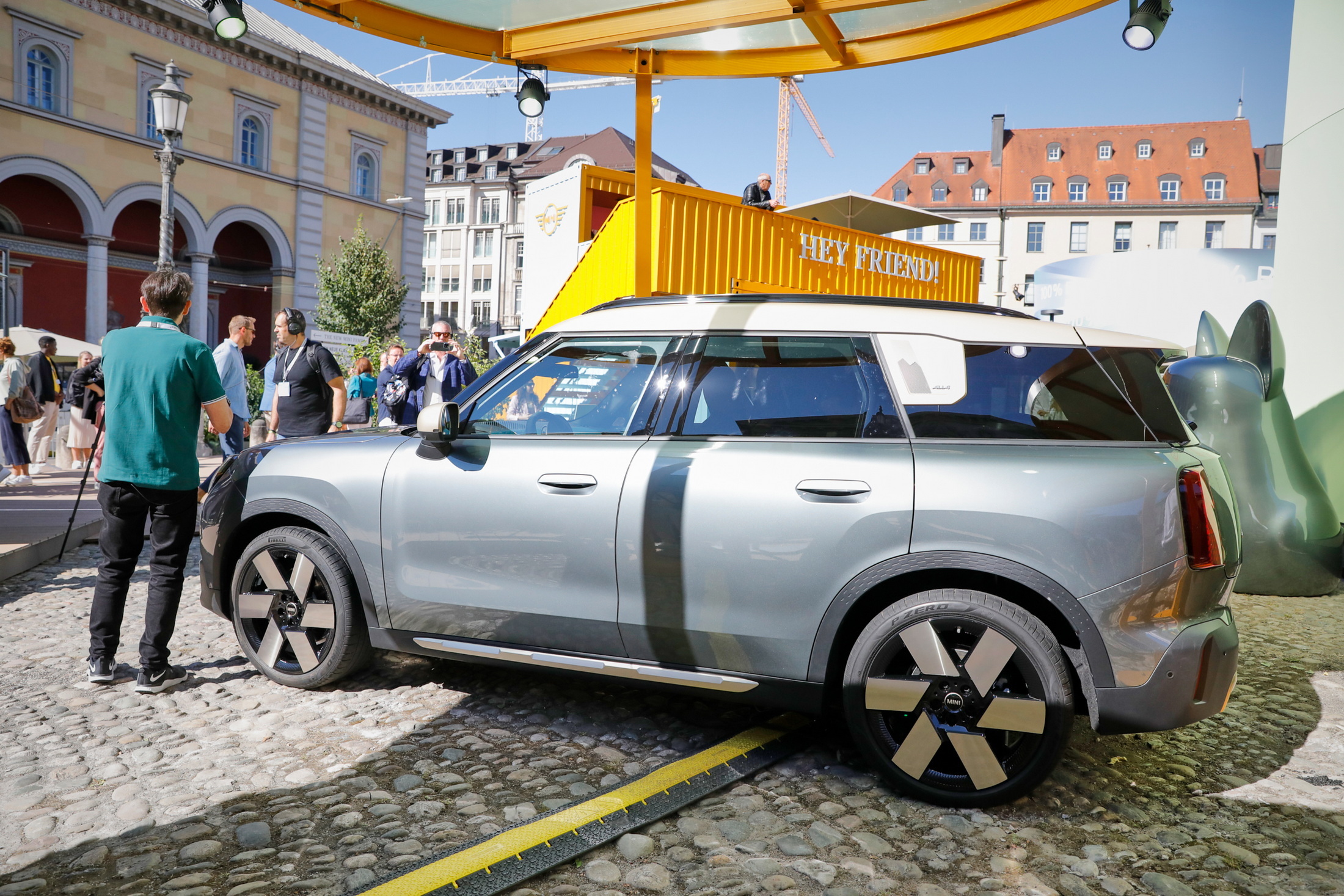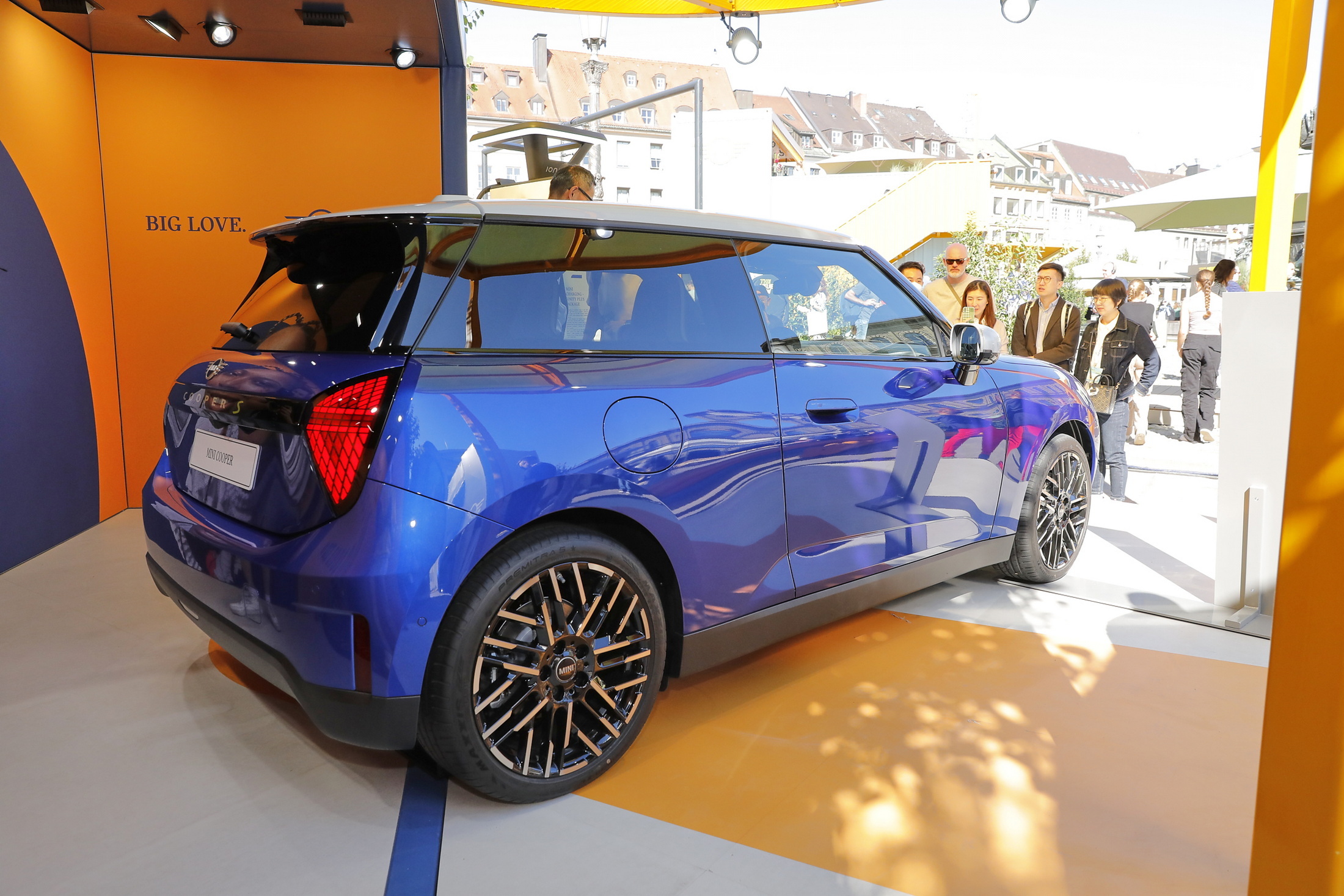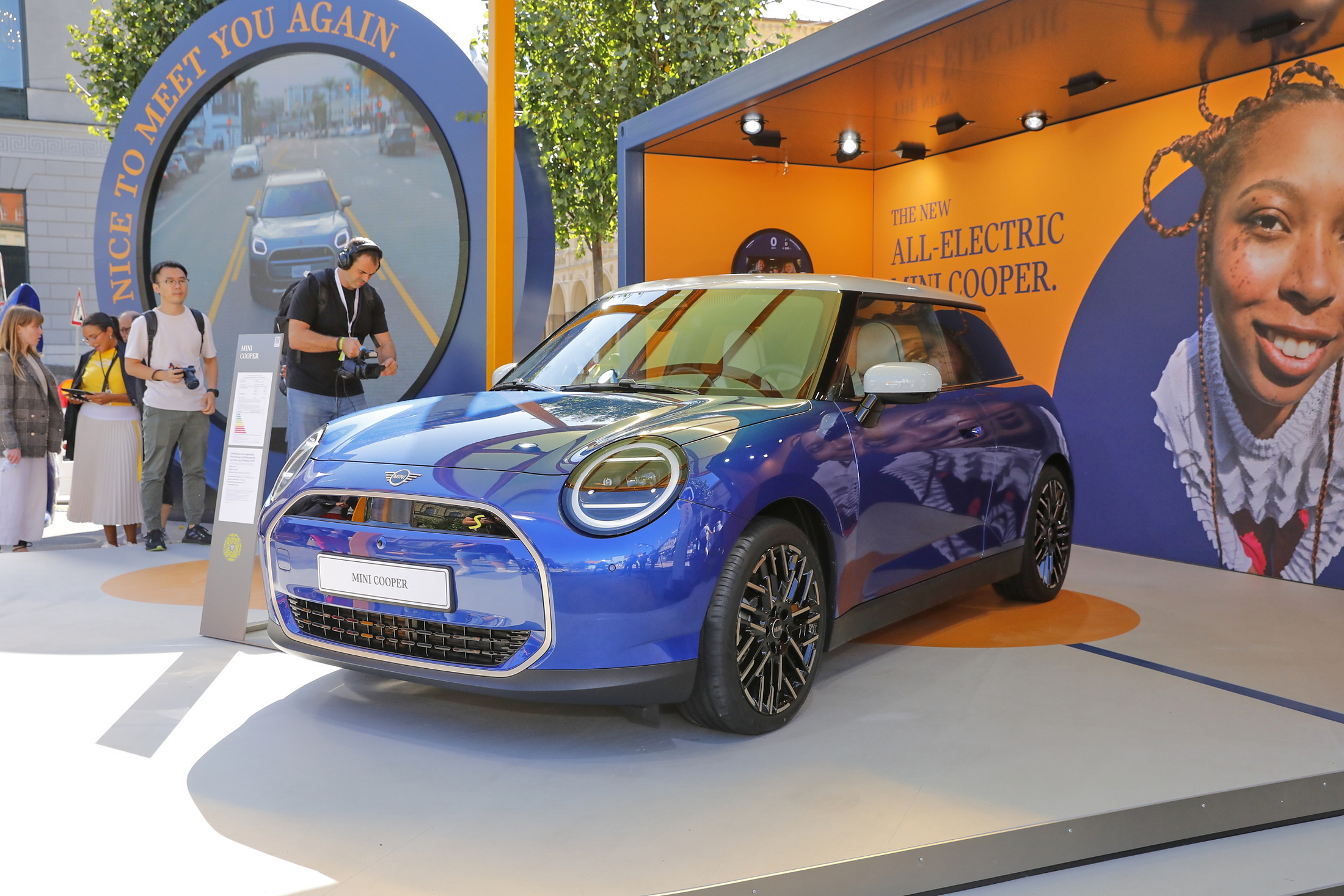Mini says it wants to be an all-electric brand by 2030, and recently unveiled a pair of next-gen EVs. But those new models will be made in China, which is a big problem for the automaker when it comes to U.S. sales.
Because the two-door Mini and the larger Countryman model will be made in China, they are subject to a 25 percent tariff if Mini tries to import them to the U.S. Although it is not yet ready to announce how it will solve that problem, the automaker says it has a plan that it will make official later this year.
“It’ll be good news for North America,” Michael Peyton, the VP of Mini of the Americas, told Autonews. “We’ve got a plan to make sure we can bring those products to market at the right price points and from a business case that works for us and our dealers.”
Read: 2025 Cooper EV Is A Grown-Up Premium Hatch That’s More Baby BMW Than Mini
Photos Baldauf / ten Brink for CarScoops
Mini’s new CEO, Stefanie Wurst, said that a couple of options are being evaluated, including reducing costs to the point that its vehicles can still be competitive or making its vehicles in another location. That might mean producing new vehicles at its Oxford, U.K., plant, but that’s not the only option.
Although Mini doesn’t sell enough vehicles in North America to justify opening a brand-new plant, its place within the BMW Group means that it still has some options. The German automaker recently announced big investments in its American and Mexican plants to facilitate EV production, which Mini may be able to piggyback off of.
“The advantage of being part of the BMW Group is we can leverage some of those production locations,” Peyton said. “Now that the [BMW] group has said, “we’re accelerating into this,” we have the option to start asking those questions.”
Mini also believes that its new, larger products (such as the Mini Countryman and the upcoming Aceman) will help it grow its market share in the U.S. As it sells more, there will be more reasons to produce in North America, which could help it further. For now, U.S. consumers interested in the brand’s upcoming EVs should find solace in the fact that plans are being formed to get them stateside.

























